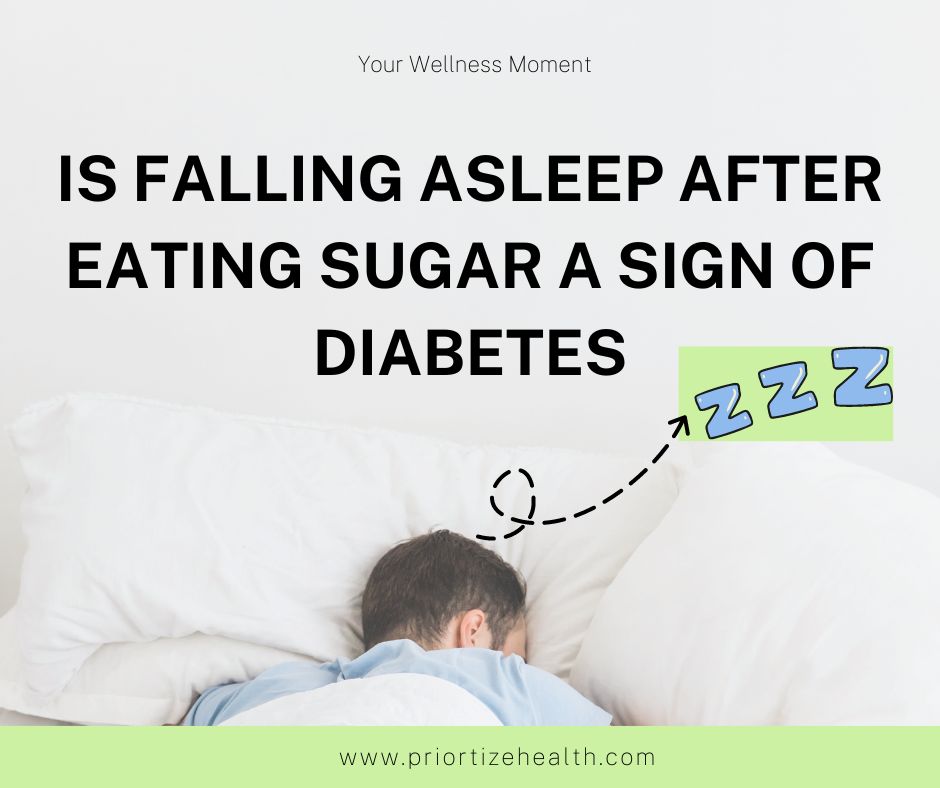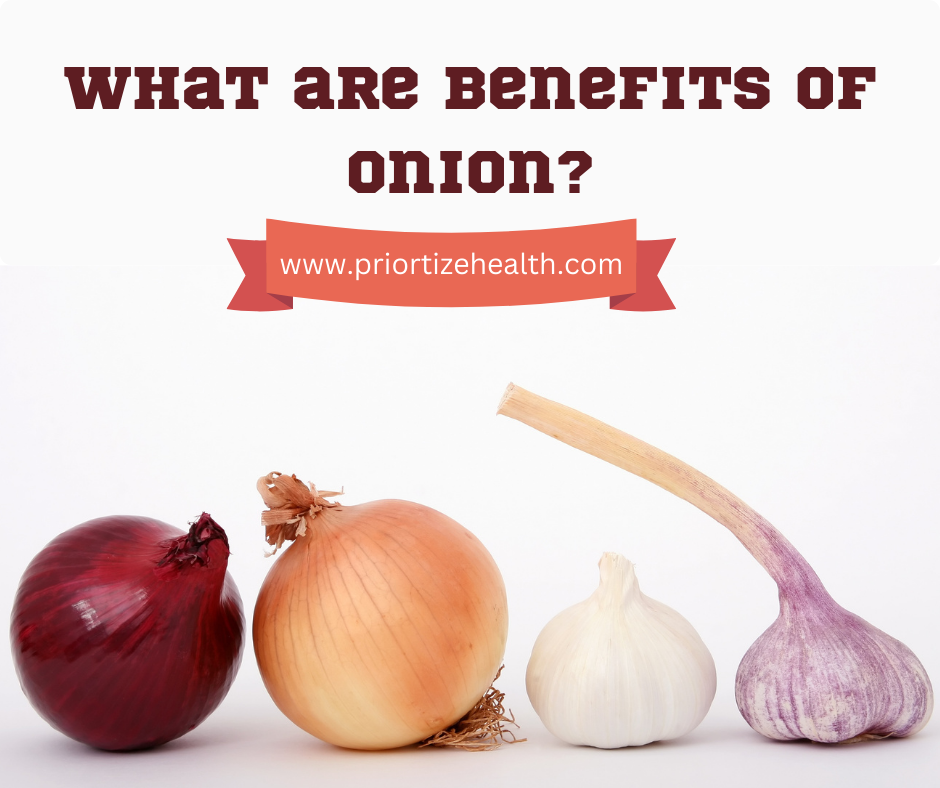
Is Falling asleep after eating Sugar sign of Diabetes
Many of us have experienced the post-sugar indulgence drowsiness. These are moments when a sweet treat leaves us feeling sleepy. But could this be more than a sugar crash? In this article, we’ll explore the potential connection between falling asleep after eating sugar. Let’s also understand its signs and implications for diabetes.
Why People with Diabetes may experience Sleepiness After Eating:
1. Insulin Response:
- Individuals with diabetes may have impaired insulin function. This leads to difficulties in regulating blood sugar levels.
- After eating, the body releases insulin to help cells absorb glucose for energy.
- In diabetes, insulin resistance or insufficient insulin production can result in an inefficient glucose-to-energy conversion process.
2. Blood Sugar Fluctuations:
- Do you consume foods high in simple carbohydrates or a large amount of carbohydrates? This can cause a rapid spike in blood sugar levels.
- The body’s response to this spike involves releasing insulin. This will help to bring down blood sugar levels.
3. Hypoglycemia (Low Blood Sugar):
- In some cases, the rapid insulin response may cause an overshoot. It leads to lower-than-normal blood sugar levels, known as hypoglycemia.
- Hypoglycemia can result in symptoms such as fatigue, drowsiness, and lethargy.
4. Impact on Brain Function:
- Glucose is the primary source of energy for the brain.
- Fluctuations in blood sugar levels can affect the brain’s ability to maintain a steady energy supply. This leads to feelings of tiredness.
5. Timing of Meals and Medications:
- Proper timing of meals and diabetes medications is crucial. It helps in maintaining stable blood sugar levels.
- Mismanagement of meal timing or medication doses can contribute to post-meal fatigue.
6. Individual Variability:
- Responses to food and insulin can vary among individuals with diabetes. This makes it challenging to predict the extent of post-meal drowsiness.
7. Dehydration:
- Elevated blood sugar levels can lead to increased urination, causing dehydration.
- Dehydration can contribute to feelings of fatigue and sleepiness.
Preventive Measures and Management:
1. Balanced Diet:
Emphasize a balanced diet with complex carbohydrates, fiber, and lean proteins. It will help to promote steady blood sugar levels.
2. Regular Monitoring:
Track your blood sugar levels on a regular basis. This will help to identify patterns and make necessary adjustments to medications or dietary choices.
3. Meal Timing:
Plan meals and snacks at consistent times. This will help to regulate blood sugar levels throughout the day.
4. Physical Activity:
Engage in regular exercise to improve insulin sensitivity. It will assist in managing blood sugar levels.
5. Consult Healthcare Professionals:
Seek guidance from healthcare providers for personalized advice on managing diabetes. They will also guide in preventing post-meal sleepiness.
Understand the complex interplay between insulin, blood sugar, and energy levels. It is crucial for individuals with diabetes. Adopt a proactive approach to diabetes management. This includes a healthy lifestyle and regular monitoring. Individuals can reduce the risk of experiencing excessive sleepiness after meals.
How to Know if Sleepiness Has a Link with Diabetes
Excessive sleepiness may be caused due to various factors. They are lifestyle, stress, and sleep quality. But, if you suspect that sleepiness is due to diabetes, it’s essential to consider specific signs and symptoms. Here’s how to determine if sleepiness may be due to diabetes:
1. Evaluate Blood Sugar Levels:
- Track your blood sugar levels on a regular basis, especially if you have diabetes.
- Consistent high or low blood sugar levels can contribute to feelings of fatigue and excessive sleepiness.
2. Recognize Other Diabetes Symptoms:
- Be aware of other common symptoms of diabetes. They may be getting more thirsty, frequent urination, unexplained weight loss, and blurred vision.
- The presence of many diabetes symptoms suggests the need for further investigation.
3. Observe Post-Meal Fatigue:
- Pay attention to your energy levels after meals. This is important if you notice a pattern of feeling excessively sleepy or lethargic.
- Consistent post-meal fatigue may be caused due to fluctuations in blood sugar levels.
4. Check for Insulin Resistance:
- Insulin resistance is a common factor in type 2 diabetes. It can lead to difficulty in utilizing glucose for energy, contributing to fatigue.
- If you suspect insulin resistance, consult with a healthcare professional for proper testing.
5. Assess Sleep Quality:
- Check your sleep patterns. Consider factors like sleep duration, sleep hygiene, and the quality of your rest.
- Diabetes can impact sleep, and poor sleep may contribute to daytime sleepiness.
6. Consult Healthcare Professionals:
- If you have concerns about the relationship between sleepiness and diabetes, consult with healthcare professionals. They can be your primary care physician or an endocrinologist.
- Describe your symptoms and undergo relevant tests to assess diabetes-related factors. These tests can be blood glucose testing and HbA1c measurement.
7. Review Medication Side Effects:
- Some medications prescribed for diabetes management may have side effects related to drowsiness or fatigue.
- Discuss your medication regimen with your healthcare provider. They will help to determine if adjustments are necessary.
8. Consider Lifestyle Factors:
- Check your lifestyle factors, including diet, physical activity, and stress levels. They can impact both diabetes management and your well-being.
9. Track Symptoms Over Time:
- Keep a journal to track patterns of sleepiness, meals, and blood sugar levels over time.
- Documenting your experiences can provide valuable information for healthcare professionals.
10. Regular Check-ups:
- Schedule regular check-ups with your healthcare provider. Discuss with them about any changes in symptoms or concerns related to diabetes.
It’s crucial to approach the relationship between sleepiness and diabetes. Consult with healthcare professionals and undergo relevant tests. It will help determine the underlying causes and guide appropriate interventions.
What Other Reasons Do People Fall Asleep After Eating?
Several factors can contribute to the phenomenon of feeling sleepy after eating. But they may not be due to diabetes. Here are some common reasons why people may experience post-meal drowsiness:
1. Digestive Process:
The act of digestion requires energy, and blood flow moves toward the digestive system. This causes a temporary decrease in energy levels.
2. Insulin Response:
Beyond diabetes, everyone experiences a natural increase in insulin after consuming a meal. It may be due to a diet rich in carbohydrates. This can lead to an increase in the amino acid tryptophan. It is a precursor to serotonin and melatonin. They are neurotransmitters associated with relaxation and sleep.
3. Meal Composition:
Consuming a large, carbohydrate-heavy meal can cause a rapid increase in blood sugar levels. There may be an immediate drop in the blood sugar levels. This fluctuation can contribute to feelings of fatigue.
4. Food Choices:
Certain foods can lead to a quick rise and fall in blood sugar levels. These foods are those high in refined sugars and simple carbohydrates. This may be a reason for causing drowsiness.
5. Thanksgiving Syndrome:
The “Thanksgiving syndrome” refers to the post-meal sleepiness. People experience it many a times after a large, rich meal. It’s a combination of factors, including food quantity and composition.
6. Serotonin Release:
Some foods contain tryptophan, an amino acid. It stimulates the production of serotonin, a neurotransmitter associated with relaxation and mood. This can contribute to feelings of drowsiness.
7. Parasympathetic Nervous System Activation:
The parasympathetic nervous system affects the “rest and digest” response. It becomes more active after eating. This can lead to relaxation and a decrease in alertness.
8. Dehydration:
In some cases, dehydration can contribute to feelings of fatigue. It’s essential to stay hydrated, as digestion requires water.
9. Circadian Rhythms:
Natural fluctuations in energy levels throughout the day, influenced by circadian rhythms. It can make some people more prone to feeling sleepy after meals.
10. Individual Variability:
Each person’s body’s reaction to meals is different. Some individuals may be more susceptible to post-meal drowsiness than others.
11. Nutrient Absorption:
The process of absorbing nutrients from the digestive system into the bloodstream can consume energy. It contributes to a temporary decrease in alertness.
Post-meal sleepiness is often a natural response. But persistent or extreme fatigue may warrant attention and could be indicative of other health issues. If individuals have concerns about excessive sleepiness consult with a healthcare professional. They will help to rule out any underlying medical conditions.
How to Avoid Sleepiness After Eating
To avoid sleepiness after eating and maintain better energy levels throughout the day. Consider implementing the following strategies:
1. Choose Balanced Meals:
- Choose well-balanced meals that include a mix of complex carbohydrates, lean proteins, and healthy fats.
- Avoid consuming excessive large or heavy meals. They can contribute to post-meal fatigue.
2. Control Portion Sizes:
Practice portion control to prevent overeating. Smaller, more frequent meals may help regulate blood sugar levels and energy.
3. Limit Simple Carbohydrates and Sugars:
Reduce the consumption of foods high in simple carbohydrates and sugars. They can lead to rapid spikes and subsequent drops in blood sugar levels.
4. Incorporate Fiber:
Include fiber-rich foods such as whole grains, fruits, and vegetables in your meals. Fiber helps stabilize blood sugar levels. It provides a more sustained release of energy.
5. Stay Hydrated:
Drink water before, during, and after meals to stay hydrated. Dehydration can contribute to feelings of fatigue.
6. Choose Low-Glycemic Foods:
Favor low-glycemic foods that have a slower impact on blood sugar levels. Examples include legumes, non-starchy vegetables, and whole grains.
7. Include Protein-Rich Snacks:
If you need a snack, choose protein-rich options like Greek yogurt, nuts, or lean meats. Protein helps promote satiety and stabilizes blood sugar.
8. Limit Caffeine and Stimulants:
Be mindful of your caffeine intake, especially after meals. Excessive caffeine can interfere with digestion and contribute to energy fluctuations.
9. Take Short Walks:
Engage in light physical activity, such as a short walk, after meals. Physical movement can aid digestion and help prevent feelings of lethargy.
10. Practice Mindful Eating:
Eat in a slow and mindful manner. Pay attention to your body’s hunger and fullness cues. Mindful eating can enhance digestion and prevent overeating.
11. Include Water-Rich Foods:
Choose water-rich foods, such as fruits and vegetables. They contribute to your hydration and provide a sense of fullness.
12. Manage Stress:
High stress levels can contribute to fatigue. Incorporate stress-reducing techniques, such as deep breathing or meditation, into your routine.
13. Ensure Adequate Sleep:
Prioritize getting enough quality sleep at night. This will help to prevent general fatigue during the day.
14. Plan Meals and Snacks:
Plan your meals and snacks to avoid long periods without eating, which can lead to drops in blood sugar levels.
15. Limit Alcohol Intake:
Excessive alcohol consumption can contribute to drowsiness. Moderation is key, especially during meals.
Conclusion:
Falling asleep after indulging in sugary treats might be a common occurrence. But it’s essential to recognize when it could signal something more serious, such as diabetes. Understand the relationship between sugar consumption, insulin response, and fatigue. This can empower individuals to make informed dietary choices and prioritize their health. If in doubt, seek professional advice. This ensures timely intervention and effective management of potential health concerns.
FAQ’s:
Ans: We can confirm diabetes through blood tests measuring glucose levels. The most common tests are fasting blood sugar (FBS), oral glucose tolerance test (OGTT), and HbA1c. FBS measures fasting glucose, OGTT assesses glucose response after consuming a sugary solution. The HbA1c test reflects average blood sugar over several months. Elevated results indicate diabetes. Consult a healthcare professional for accurate diagnosis and appropriate management.
Ans: Early signs of diabetes include increased thirst, frequent urination, unexplained weight loss, extreme hunger, fatigue, slow healing of wounds, blurred vision, tingling or numbness in extremities, recurrent infections, and dry skin. These symptoms may indicate high blood sugar levels. If you experience these warning signs, consult a healthcare provider for proper evaluation and diagnosis. Early detection and management are crucial for controlling diabetes and preventing complications.
Ans: The three most common symptoms of undiagnosed diabetes are excessive thirst (polydipsia), frequent urination (polyuria), and unexplained weight loss. Elevated blood sugar levels lead to increased thirst and urination. The body may break down muscle and fat for energy, resulting in weight loss. If these symptoms persist, it’s essential to seek medical attention. This will ensure proper diagnosis and management of diabetes to prevent complications. Regular check-ups and blood tests can aid in early detection and intervention.






4 Comments
This gateway is fabulous. The splendid substance displays the maker’s commitment. I’m overwhelmed and envision more such astonishing material.
This gateway is fabulous. The splendid substance displays the maker’s commitment. I’m overwhelmed and envision more such astonishing material.
Thanks for sharing. I read many of your blog posts, cool, your blog is very good.
Thanks for sharing. I read many of your blog posts, cool, your blog is very good.